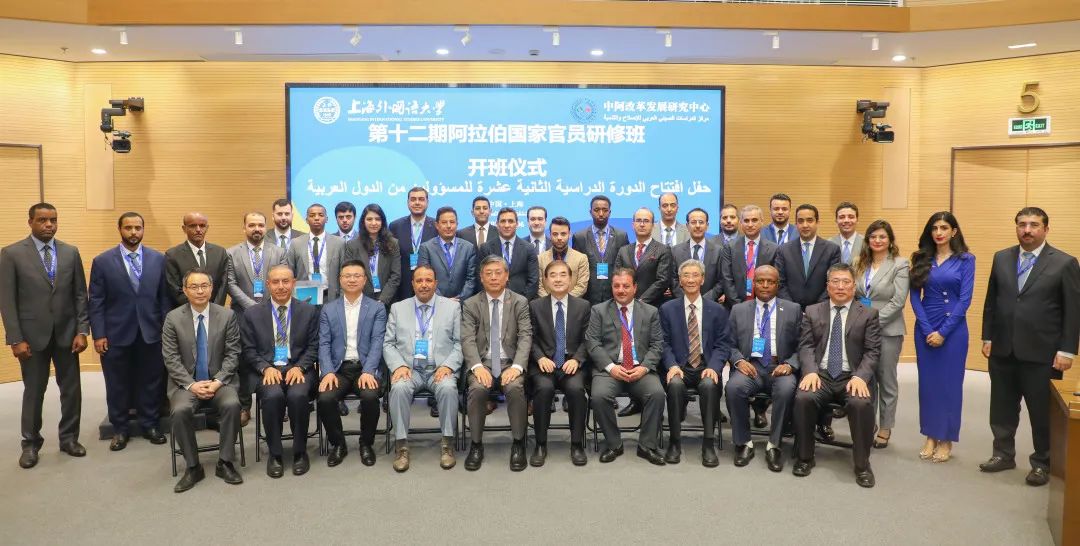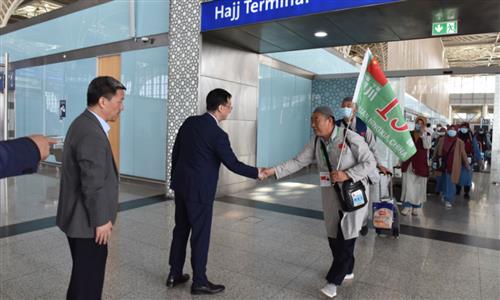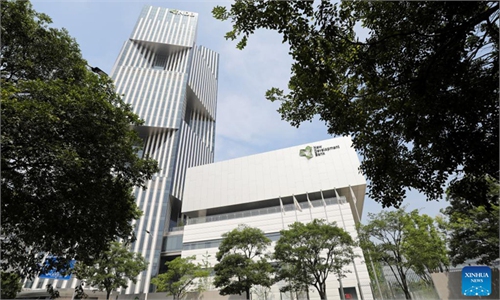
The opening ceremony of the 12th Seminar for Arab Officials in Shanghai in May 2023. Source: WeChat account of the China-Arab Research Center on Reform and Development
"After coming to China, I found that the situation here is completely different from what the West portrays," said Zine-eddine Goufi, Director-General of the Asia Oceania Division of the Ministry of Foreign Affairs of Algeria.
Goufi was one of 31 officials from 18 Arab states who attended the 12th Seminar for Arab Officials hosted by my institution, the China-Arab Research Center on Reform and Development, in Shanghai last month. During the program, the officials attended lectures and visited Yiwu, gaining a firsthand understanding of Chinese modernization.
China's role as a mediator in the resumption of diplomatic relations between Saudi Arabia and Iran has strengthened its relationship with Arab countries. China's role in the Middle East has expanded from being a simple economic builder and development promoter to a political and diplomatic mediator and security provider. Arab countries have raised their expectations of China because they see it as a constructive mediator, unlike the US, which creates divisions and benefits from conflicts in the Middle East. Therefore, development and peace are more important to Arab countries, making it urgent for them to learn from Chinese modernization.
Both China and Arab countries have suffered from Western colonial plunder in modern times and face the fundamental task of achieving modernization. In the process of realizing modernization, China has achieved two miracles: rapid economic development and long-term social stability. For countries that want to develop their economy and establish an effective national governance model, the Chinese modernization process provides successful cases and model experiences. Arab countries, in particular, need to carefully manage the relationship between reform, development, and stability.
During the program, attendees shared their observations of Chinese modernization from various perspectives. May El-Hayek, a diplomat at the Ministry of Foreign Affairs and Emigrants of Lebanon, was pleased to learn about the proportion of women in the position of vice mayor of Shanghai and the Shanghai People's Congress, saying "women's empowerment is an important manifestation of social modernization. China, as a world power, and Shanghai, as a global megacity, are setting an example and will surely promote the improvement of the status of women worldwide. This is the biggest attraction of Chinese modernization for me."
These officials believe that China's rapid technological progress is the driving force behind Chinese modernization and the key to China's future leadership in global progress and the development of other countries. Rahman Luan Mohsen, the Head of the Department of Asia and Australia of the Ministry of Foreign Affairs of Iraq, said after visiting the Commercial Aircraft Corporation of China (COMAC), "The Chinese path to modernization is unique in the world and is a great and immortal miracle. It is worth learning and drawing on by Arab countries."
"I knew about the C919 before. China Southern Airlines and China Eastern Airlines are also well-known internationally. I learned that COMAC is continuously launching new models, which is very positive. Independent research and development is crucial for any enterprise, and COMAC has achieved this, as has China. As a result, COMAC will continue to improve, as will China's manufacturing," he added.
Through comparison, Arab officials have gained a deep understanding of the deliberate distortion of China by Western media. Goufi from Algeria told me that the West only reports on problems and fails to acknowledge China's solutions. Additionally, the West uses technology to create wars, while China uses technology to benefit people.
Seeing the wisdom and sharing similar thoughts, Arab officials explored how to apply Chinese modernization experience to their own countries. After visiting the G60 Science & Technology Innovation Valley, Samir Bacha, Director-General of Arab Countries at the Algerian Ministry of Foreign Affairs, noted that China's path to modernization has led to rapid industrial and economic development in a short period of time. He believes that these new development concepts and technologies will surely benefit the world, and hopes to see them implemented in his own country one day.
Moreover, Abdelrhani Charfi, a diplomat from Morocco, pointed out that China's development concept provides a new path for Arab countries to achieve modernization. The construction of a China-Arab community with a shared future in the new era is a joint exploration of modernization processes by China and Arab countries, which will serve as an example of South-South cooperation for developing countries.
The author is secretary-general of the China-Arab Research Center on Reform and Development at Shanghai International Studies University. opinion@globaltimes.com.cn


